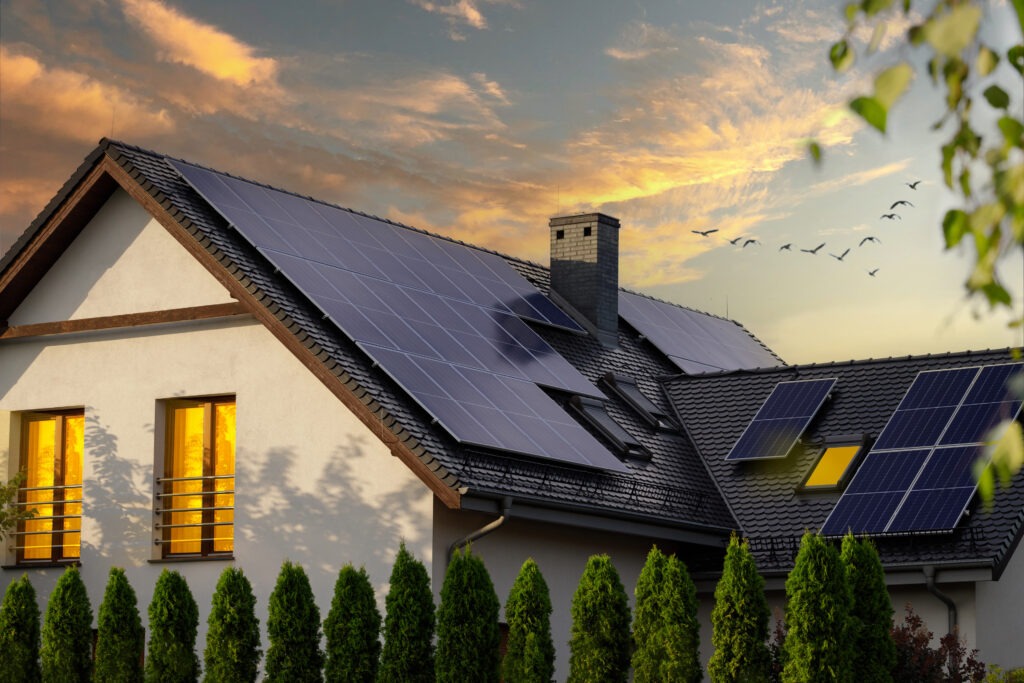Source Advisors provides energy consulting services that help clients with design assistance, renewable energy, certifications to meet energy and compliance targets, and energy audits to reduce energy costs. Our engineers have deep experience in a broad range of energy solutions for commercial and residential properties.
"*" indicates required fields
Energy Star certifications for single family and multifamily homes ensure that residential buildings meet specific energy efficiency standards. Developed by the U.S. Environmental Protection Agency (EPA), these certifications indicate that the building performs in the top 25% of similar facilities nationwide for energy efficiency and meets strict energy efficiency performance levels set by the EPA.

EPA’s Portfolio Manager is an online tool used for measuring and tracking energy and water consumption, as well as greenhouse gas emissions. It allows building owners and managers to benchmark the performance of one building or a whole portfolio of buildings, comparing performance against similar buildings nationwide.
The U.S. Department of Energy’s Zero Energy Ready Home certification is awarded to homes that are so energy efficient, a renewable energy system can offset most or all the annual energy consumption. These homes meet rigorous requirements for energy savings, comfort, health, and durability.
The Home Energy Rating System (HERS) Index is the industry-standard by which a home’s energy efficiency is measured. It’s also the nationally recognized system for inspecting and calculating a home’s energy performance. HERS ratings can be used for code compliance as well as for achieving various green building certifications.

Leadership in Energy and Environmental Design (LEED) is a globally recognized green building certification system. It provides a framework for healthy, highly efficient, and cost-saving green buildings. LEED certification is available for building design and construction, interior design and construction, building operations and maintenance, and neighborhood development.
The National Green Building Standard™ (NGBS) Certification goes beyond energy efficiency to provide a comprehensive measure of sustainability, covering aspects such as water efficiency, indoor environmental quality, building operation and maintenance, and the building’s site. It is applicable to new and remodeled single-family and multifamily buildings.
Enterprise Green Communities is the first national green building program developed specifically for affordable housing. The criteria are designed to help developers, investors, builders, and policymakers make healthful, affordable homes that are environmentally responsible, economically viable, and socially equitable.
ASHRAE Level Audits refer to the American Society of Heating, Refrigerating and Air-Conditioning Engineers’ guidelines for conducting energy audits. There are three levels of audits, ranging from a preliminary analysis (Level 1) to a detailed analysis of capital-intensive modifications (Level 3), focusing on understanding a building’s energy consumption and identifying cost-effective ways to improve efficiency.
Utility Allowance Studies are analyses conducted to determine the monthly utility costs associated with living in a particular housing unit. These studies are important for affordable housing projects to ensure that rents plus estimated utility costs remain affordable to low-income tenants.
Electrical design involves planning, creating, testing, or overseeing the development and installation of electrical equipment, including electrical systems for buildings and power distribution.
Lighting retrofit projects involve updating existing lighting systems with more energy-efficient technology. This can include replacing old bulbs with LED lighting, installing advanced lighting controls, and redesigning the lighting layout to improve efficiency and performance.
Arc Flash Studies are conducted to assess a facility’s electrical system’s risk of arc flash incidents. These studies help in implementing safety standards to protect workers from the hazards of arc flash, which can include severe burns or serious injuries.
Initiatives offered by utility companies or government entities are designed to encourage consumers and businesses to invest in energy-efficient appliances, renewable energy systems, and conservation measures. These programs aim to reduce energy consumption and environmental impact by providing financial incentives, such as rebates, tax credits, or discounted rates, for purchasing energy-efficient products, installing energy-saving technologies, or implementing energy conservation projects. The incentives not only help lower the initial cost barrier of adopting green technologies but also promote sustainable energy use practices, leading to long-term savings on utility bills and contributing to environmental sustainability.
